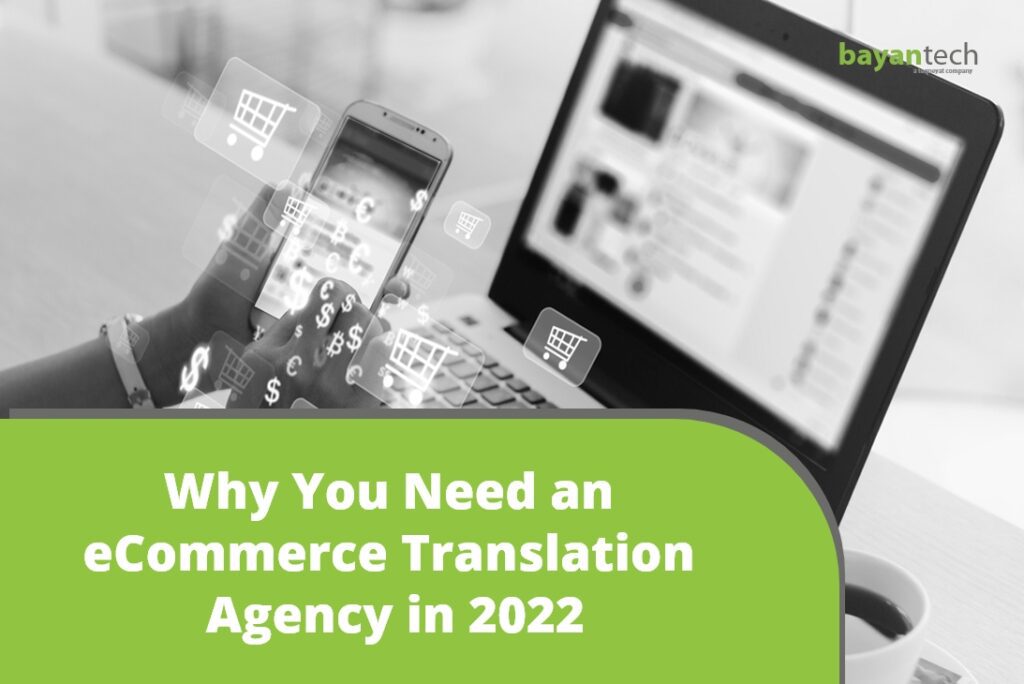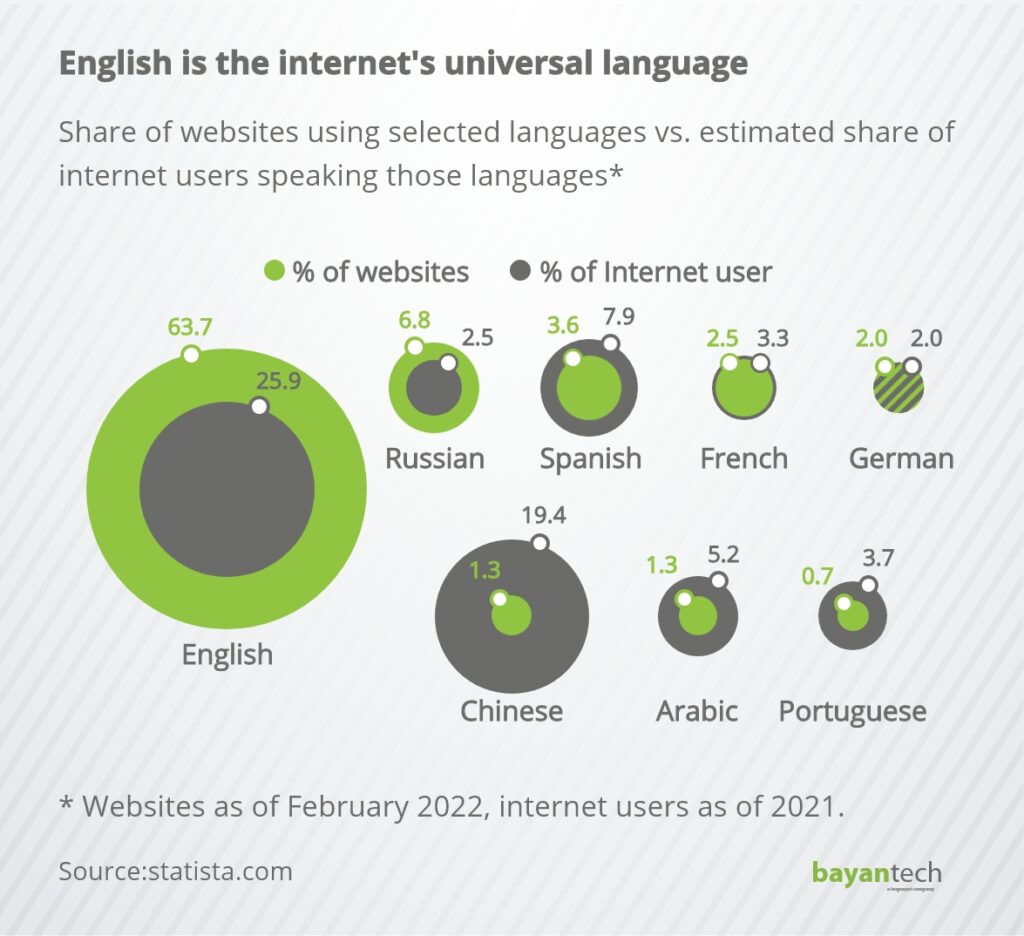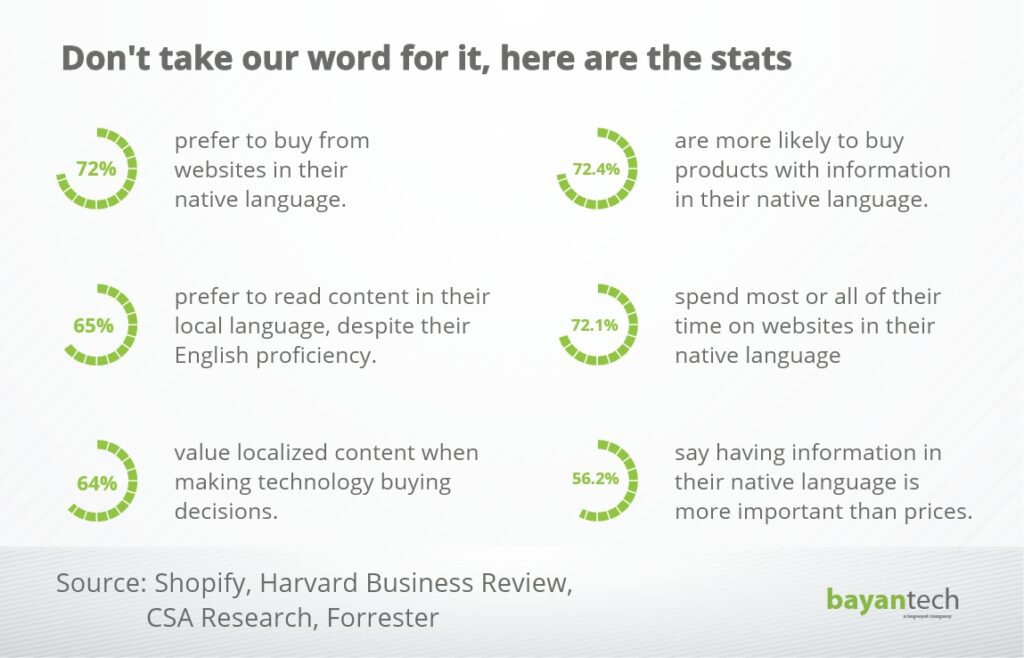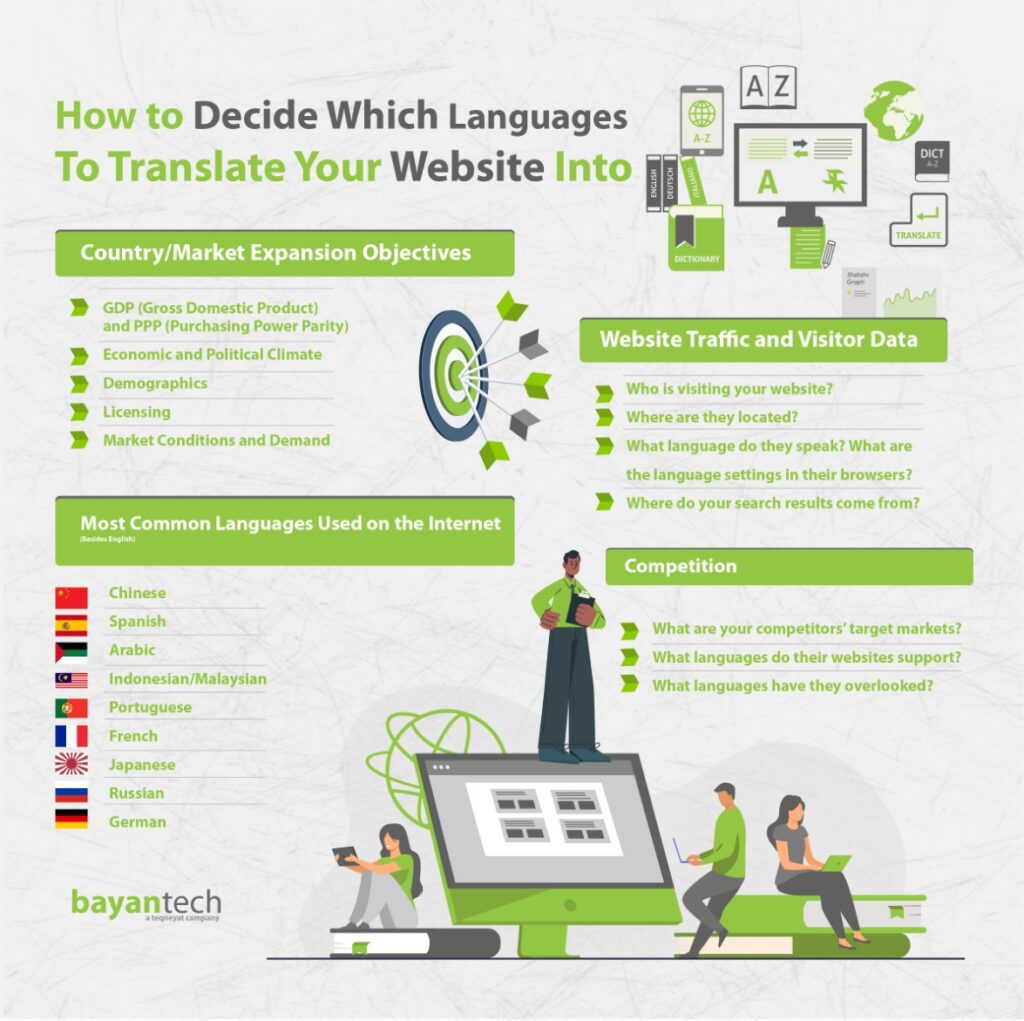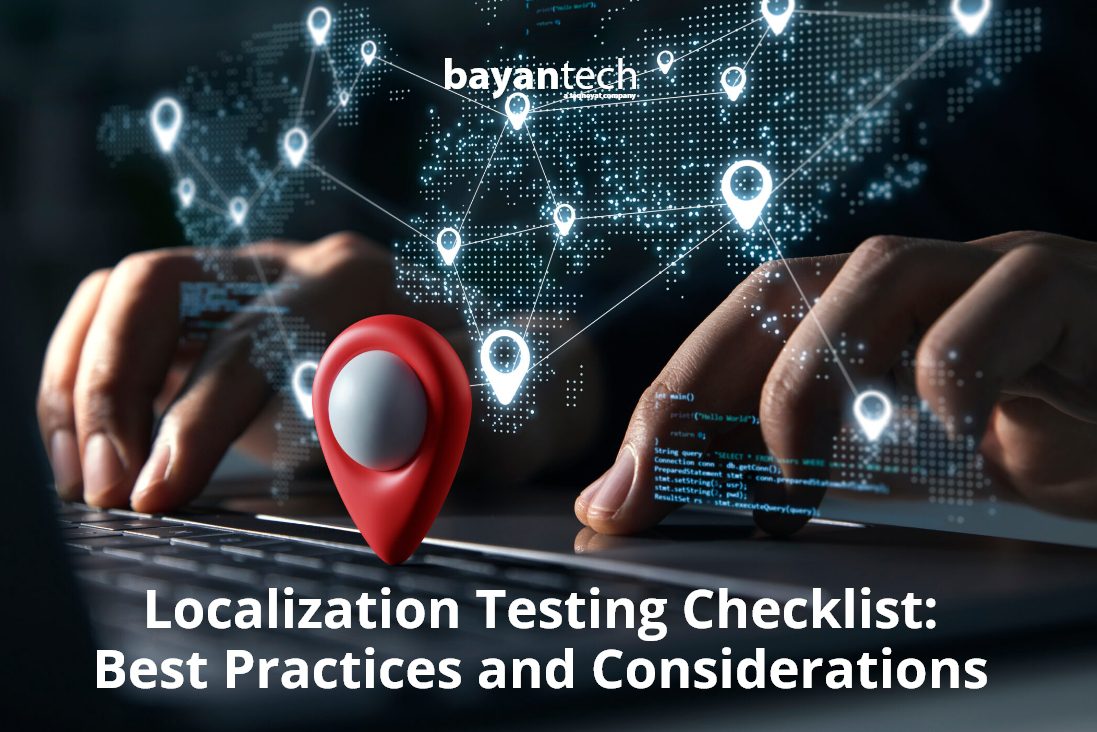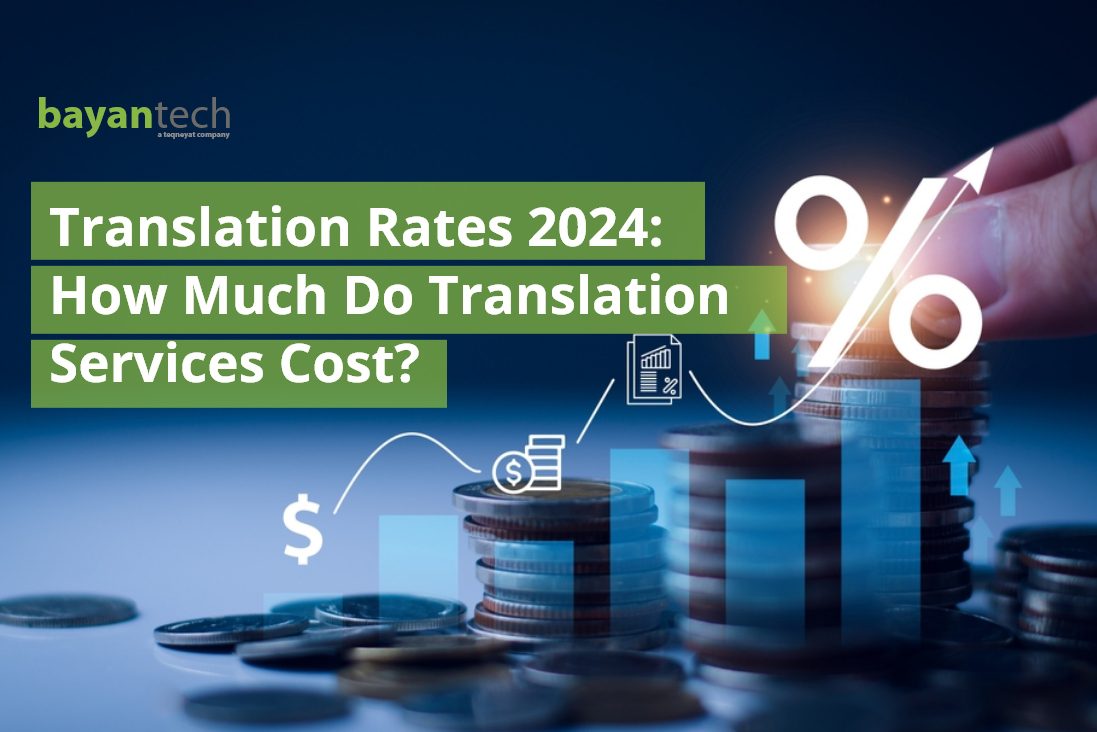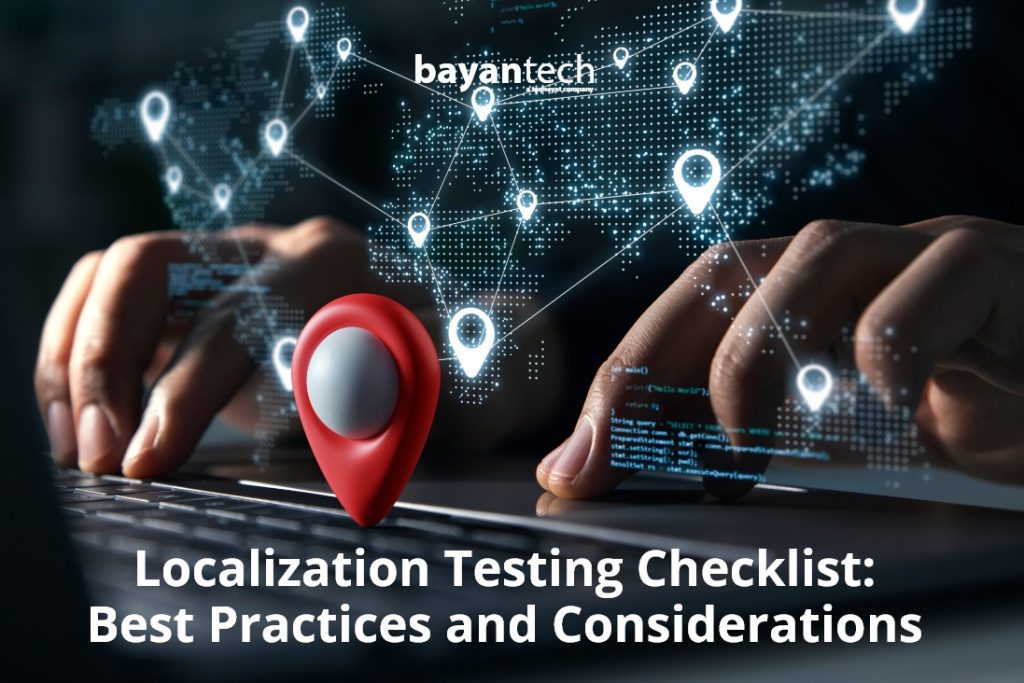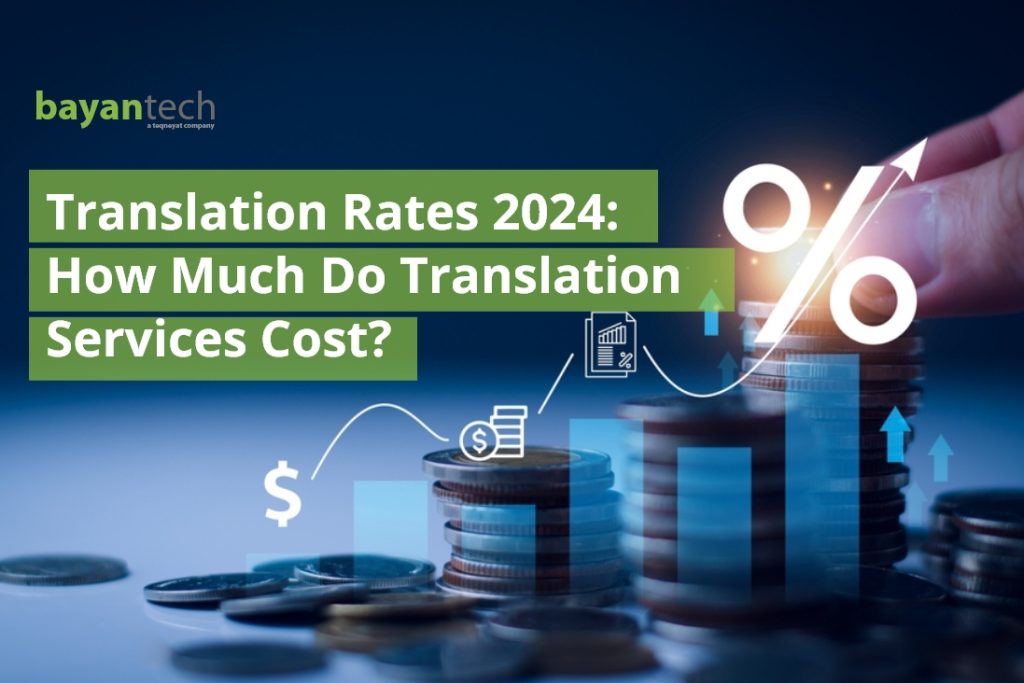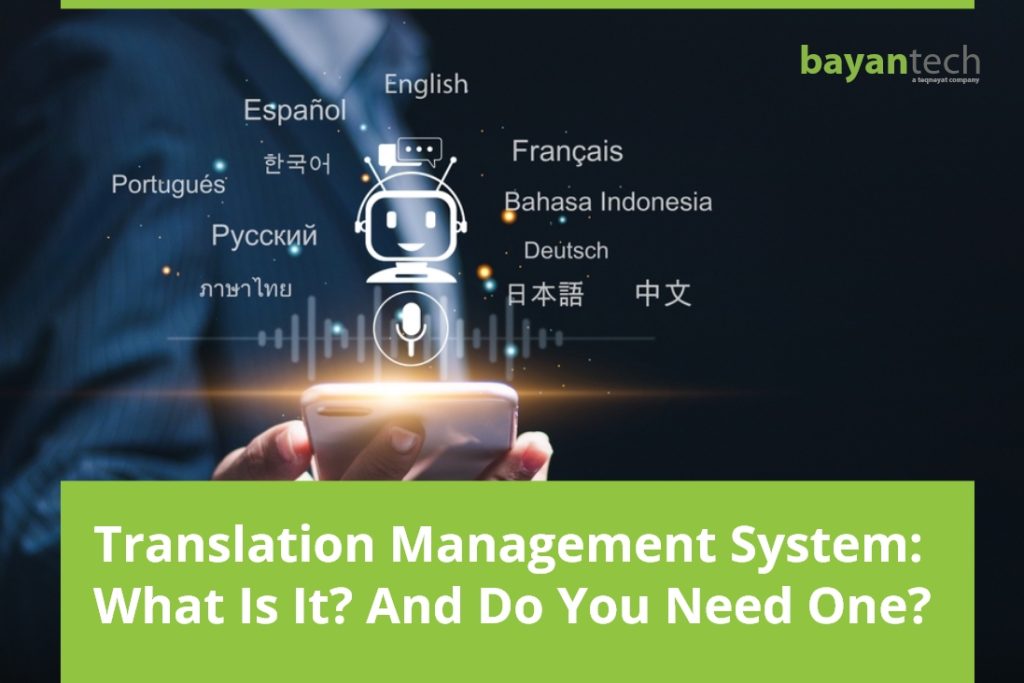If you are reading this, chances are you work in the eCommerce and retail industry. You are specifically here, because “eCommerce Translation” and the need for an eCommerce translation agency keep coming up in every business conversation. And you probably have a lot of questions going through your mind. Let’s just say that you’ve come to the right place.
Over the past few years, eCommerce has been steadily growing until 2020 came along. That’s when everything changed for everyone, particularly for the eCommerce industry. In 2020, and since then, eCommerce has been witnessing an unprecedented rapid pace of expansion.
The reality now is people from almost every corner of the world shop online.
But did you know that there’s a way to let them shop on your own eCommerce platform? Did you know that there’s a way you can make the most of this dramatic expansion and get your share of this multi-billion-dollar market? Yes, eCommerce Translation, and hence the need for a professional eCommerce translation agency.
Table of contents
- An Overview of the 2021/2022 eCommerce Market
- The Need for an eCommerce Translation Agency to Support Your Growth Strategy
- Differences between eCommerce Translation and eCommerce Localization
- 5 Ways an eCommerce Translation Company Can Help
- 8 Tips for Choosing a Top-Tier eCommerce Translation Agency
2021/2022 eCommerce Market Growth: Trends & Analysis
For decades to come, the COVID-19 pandemic has affected how we buy and sell goods. Through the blocking measures that emerged in 2020 and 2021, millions of people now have the option to shop online. In fact, billions.
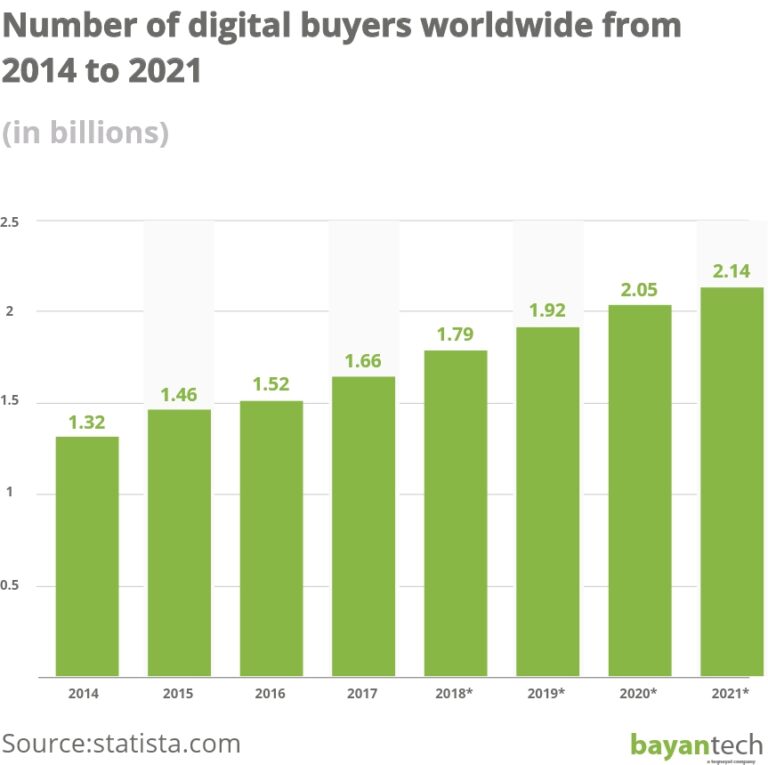
And while the pandemic is one of the driving forces behind the eCommerce market growth, there have been more factors coming into play including Internet proliferation, smartphone adoption, massive spending power, and the convenience and diversity that online shopping offers.
So, if you have an eCommerce business, NOW has never been a better time to expand in the global markets. And here are some key facts to know before you do:
- Today, there are more than 26 million e-commerce sites worldwide.
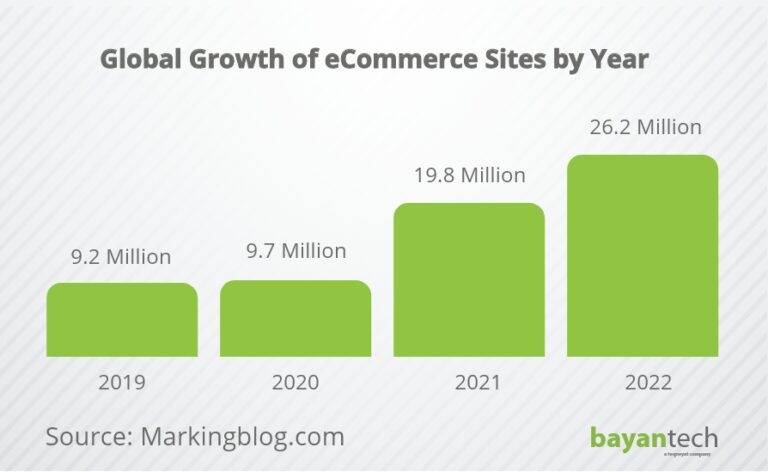
- These are the top 10 countries with the most eCommerce sites
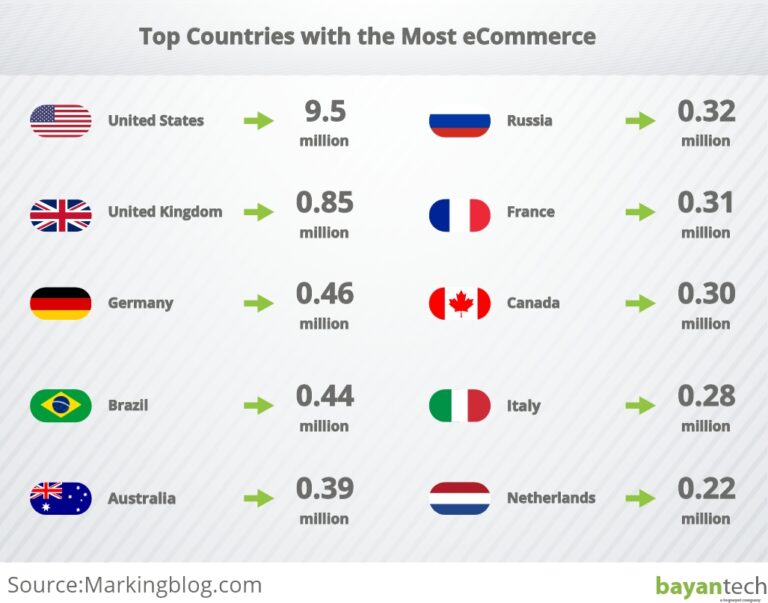
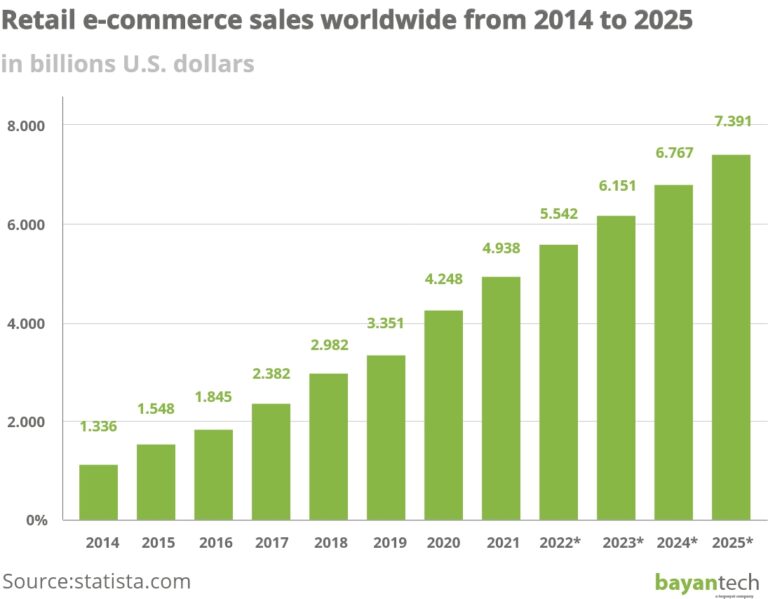
.Asia-Pacific has the lion’s share of the eCommerce share of retail in 2020, followed by North America and Europe.
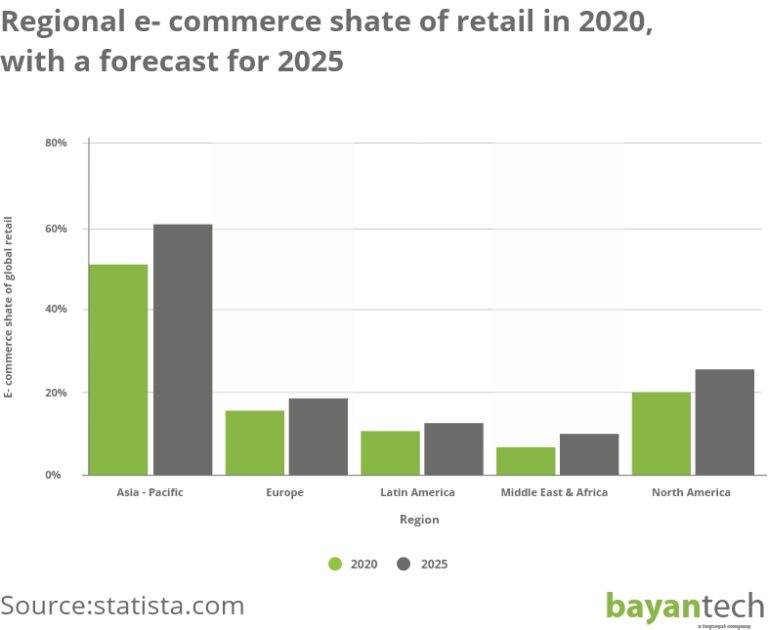
You see, the eCommerce industry is evolving and changing, and businesses are scrambling to keep pace not just with the growth and new realities of the industry, but also with the needs and expectations of the users as well as their shopping habits. This brings us to the importance of eCommerce translation and localization.
The Need for an eCommerce Translation Agency to Support Your Growth Strategy
As someone in the eCommerce industry, you understand that your business is built for growth – and profitable growth. eCommerce translation and localization are exactly that, your growth-driven, revenue-generating strategy that your eCommerce business needs. And with the help of an eCommerce translation agency, you can take your successful eCommerce business in your home market global to “people from almost every corner of the world”.
This leap of taking your eCommerce business global can be quite daunting. You basically are going outside your familiar territory, where it’s easy to communicate and attract consumers. You both speak the same language and share the same culture. This time, it’s not your local consumers, it’s the global consumers and their expectations of you.
Read next about how eCommerce localization and an eCommerce translation agency can help support your growth strategy and manage your global users’ expectations.
1. More Languages, Broader Audiences
A quick look at the previous statistics of the largest eCommerce markets and emerging markets is enough to tell you that there is so much potential for your business in different regions around the world.
And different regions mean more languages and broader audiences.
With your business expansion, you aren’t only supposed to reach new prospects and consumers in a whole new market, you need to build a connection and win their hearts and minds. And as if this isn’t challenging enough, you’ll have to do it in their own language.
But English, you say?
Well, there are 1.2 billion internet users worldwide who speak English, either natively or as a second language. Also, 63.7% of websites have their content in English.
But, did you also know that this is only 25.9% of the world’s internet users?
English can work just fine, but only as a starting point. You can only dream to build a real connection with people when their first language isn’t English. They might speak English, but they might not be confident or comfortable communicating, making buying decisions, and making payments in English.
If you aren’t sure which languages you should translate your website into, you can consult your eCommerce translation agency, or here’s a super-quick outline to guide your decision-making process.
2. Outstanding User Experience
Delivering outstanding user experiences to your global consumers is the driving force behind eCommerce translation services.
What we mean by “outstanding” here is a seamless experience across your online stores and through every step of their buying journey, from the homepage to checkout. And this goes well beyond language.
Here are 3 ways eCommerce website localization (or app localization) helps you deliver outstanding user experiences:
- Website Design
Localization transforms your website to not only accommodate the new language but the new culture.
For instance, the minimalist approach that you went for your original website might not be ideal for your Japanese or Chinese website . Web design in those markets is distinguished by the overwhelming use of vivid colors, images, and animation.
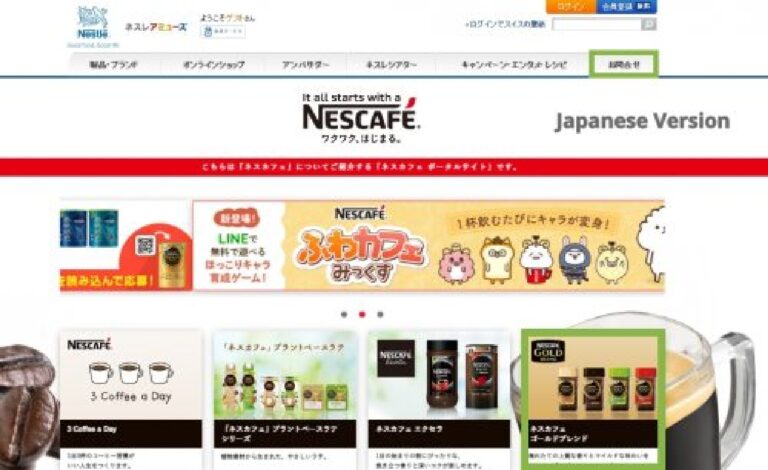
eCommerce localization puts in that extra effort. It takes the time to understand the mindset and culture of your audience to deliver what they resonate with and respond to.
- Visuals
As you expand your eCommerce business overseas, especially in a target market that’s completely different than your home market, you can easily end up offending your new audience. Colors and visual representations are a few examples of how things can be offensive.
For instance, if you are planning on expanding in the Middle East, the UAE, or Saudi Arabia, your Arabic website localization should consider the social codes of the region. In other words, customer representations and photos on your website should reflect the conservative nature of the region. For instance, they shoul be dressed the same way Arabs do
- Currencies and Payment Gateways
This, more than anything else, can make or break your foreign user experiences.
Let’s put that in context:
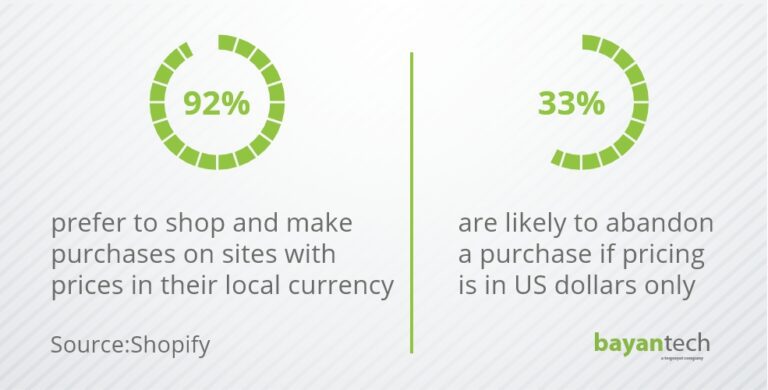
The most critical moment in your user’s journey is checkout. Reaching that stage is the culmination of a couple of things, including, and not surprisingly, providing prices and additional charges in their local currencies. Otherwise, this may compromise their shopping experience and can make them subject to additional taxes and tariffs. Not only that, but if you aren’t offering them local payment gateways that they prefer, such as Cash on Delivery (COD), how do you expect them to checkout and make a purchase?
However, that’s another thing eCommerce localization takes care of. It customizes and optimizes the checkout process for your diverse audiences to keep cart abandonment to a minimum.
And that’s everyone the profound impact that eCommerce translation and the support of an eCommerce translation agency can have on your expansion efforts.
Now, you might have noticed that we are using eCommerce translation and localization interchangeably. And you are probably wondering what the differences are and which one you need.
eCommerce Translation vs. eCommerce Localization: What’s the Difference?
Before you hire an eCommerce translation agency, you should know that there are differences between eCommerce translation and eCommerce localization. The two terms are often used interchangeably, and that’s because they complement each other.
What is eCommerce Translation?
eCommerce translation entails translating the entire written or text-based content of your eCommerce platform, whether a website or an application, from one language to another. Translation takes the linguistic and cultural of the target audience into account, but it’s often a word-for-word translation process, where the purpose is to produce an equivalent rendition/ a replica of the original text in different languages.
eCommerce localization, on the other hand, is a more nuanced approach to translation. Think of translation as the tip of the iceberg, and localization THE iceberg.
What is eCommerce Localization?
eCommerce localization adapts every aspect of your platform to appeal to your new audiences in a target market or locale. This goes as far as to include the written and audiovisual content as well as the UI and layout, among other things.
Like translation, localization takes into account the linguistic and cultural aspects of the target audience. But more than translation, localization takes them on a more sophisticated level.
As a matter of fact, localization weaves your target audience’s culture into the fiber of your brand. It’s for that reason that localization is often referred to as cultural adaptation. It ensures that your brand messages and communications are country-specific and country-appropriate. From slang, humor, and cultural references to images, symbols, layout, and colors.
However, there are even more layers to localization. One of which is the market’s legal requirements. This ranges from complying with the country’s privacy regulations to providing payments in the local currency.
All in all, eCommerce localization takes your user experience seriously. It brings complete transformation to your websites and apps to deliver a native, personalized, and engaging experience that makes them feel at home.
We aren’t trying to romanticize localization, but it’s romantic and beautiful, because it puts your users center stage and reimagines your brand and platform in a way that builds a genuine human connection – the kind of connection that drives the desired action and grows businesses.
And while beautiful, it’s complex and requires an expert eCommerce translation agency that can harness the power of localization in your favor. But, we’ll get back into that in a few paragraphs.
Now, every time you think of eCommerce localization, think of how it embraces your local shoppers’ experience. To put that into perspective, localization transforms the following aspects of your eCommerce platform:
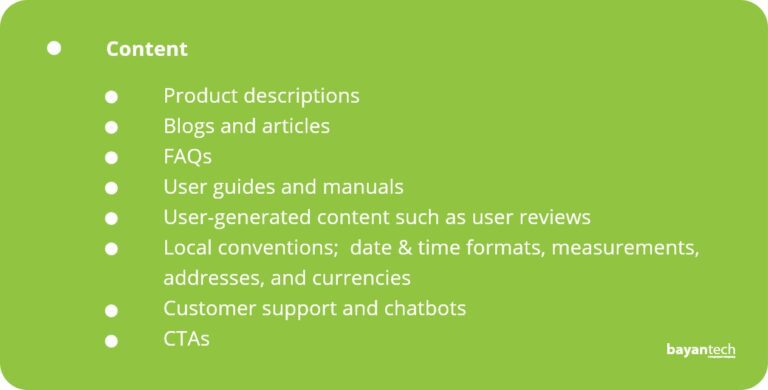


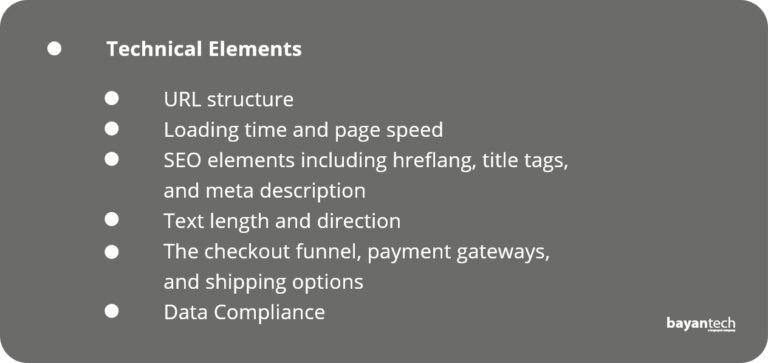
Finding a trustworthy Arabic website translation has never been easier. We’ve put together a cheat sheet that can be used as a clear roadmap ahead of you before starting a partnership.
5 Ways an eCommerce Translation Company Can Help
Your business expansion in foreign markets is an exciting opportunity, but it requires an incredible amount of time, effort, and money. Add to that the fact that your eCommerce website translation or app translation isn’t exactly a breeze or something you can DIY, do it yourself. It’s a sophisticated, multi-layered, and cross-disciplinary process where, if you decide to do it, it’s all or nothing. It has to either be done right or not at all.
For that eCommerce localization, just like every business venture, requires a support network. And in this case, a professional eCommerce translation agency provides the right personalized support, step-by-step guidance, and localization expertise that your business needs to take the new markets by storm.
An eCommerce translation agency supports those who want to make a big splash in global markets.
Here are 5 ways an eCommerce translation agency can deliver the right support.
A translation agency takes everything into its own hands, from planning to production. This includes understanding your business goals, performing thorough market research, and developing a localization strategy, built around your goals and your markets’ requirements.
Not only that but an eCommerce translation agency, especially those with years of experience in the translation and localization industry, offers a complete localization solution. They adopt a holistic approach to manage both the content and technical aspects of your platform, delivering a fully translated and localized platform that’s ready to use by your new audience.
Perhaps the most valuable part of partnering up with an expert eCommerce translation agency is the way they act as your local insider in a specific country/region.
Translation agencies understand that no one knows better than a local. When they undertake your translation project, they put an expert team of native-speaking translators, who are residents in your target countries, in charge. Besides their language proficiency, they have first-hand knowledge of the people and culture in question and are in constant touch with the reality of the locale, its societal context, values, beliefs, news and pop culture, events, trends…etc. That makes them the most qualified to produce translations that strike a chord with your target audiences.
Similarly, they know exactly what could repel or offend your audiences. Being there, in these locales, makes them highly aware of sensitivities, topics, and references to avoid. Their invaluable input empowers you to appeal to the new market as a friendly, non-offensive brand.
Sign up to our newsletter to receive the latest blogs and news.
If you think you’ll just need “any” translation agency, think again.
eCommerce content falls under the category of content marketing, which is geared towards building a strong connection with users at every step of their buying journey. This content educates and entertains, addresses pain points, and provides valuable solutions that enrich your users’ lives and move them through the conversion funnel. Not only should it be persuasive, but eCommerce content should be on-brand, showing off your brand personality consistently.
For this, you’ll need an “eCommerce” translation agency that relies on adept translators who specialize in eCommerce across industries. Their industry-specific knowledge and expertise, coupled with their language proficiency, translation experience, and marketing background, make them capable of providing high-quality translation that reflects the unique value and purpose of that particular type of content. In other words, translation that gets results , brings qualified leads, and ultimately increases your conversion rates.
As you get started with your eCommerce translation, you might get caught up in the feud between machine translation and human translation. But with an eCommerce translation agency, you get the best of both worlds.
Machine translation is transforming industries, and eCommerce comes at the forefront of such transformation. There are quite a few reasons why this is happening, but mainly for two reasons:
- Machine translation is constantly evolving and improving to become more intelligent, quality-oriented, and reliable.
- There’s a pressing market demand for a colossal quantity of eCommerce content But the reality is that machine translations still have limitations that can compromise the quality of your eCommerce translation. They don’t recognize language subtleties, cultural nuances, or context.
However, when you work with an avant-garde eCommerce translation agency, you can rest assured that you can reap the benefits of automated translation and human translation. These agencies offer Machine Translation Post-Editing (MTPE) services, which allow you to run your eCommerce content through machine translation. Next, a team of trained human translators thoroughly review and fine-tune the content to ensure human-level accuracy.
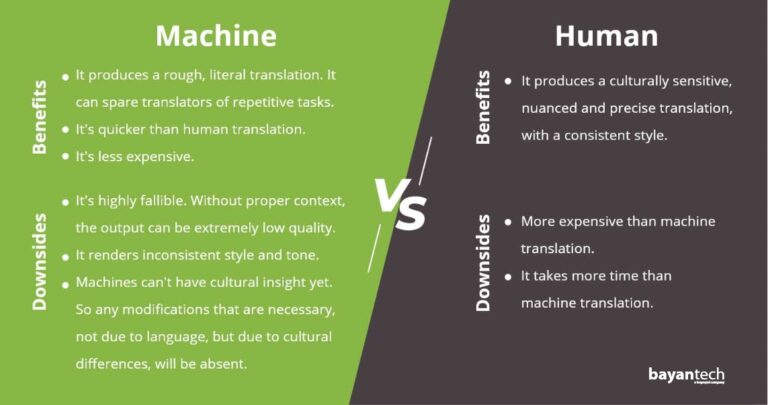
Oftentimes, businesses opt for machine translation for the winning combination of speed, scale, and cost-efficiency. Completely justified, because again, the market has its demands. However, in case you decided to prioritize quality and rely on human translation for your eCommerce sites, then worry not. A reputable eCommerce translation agency can offer you this trifecta: scale, speed, and cost-efficiency.
The best translation services providers have a huge network of translators, localization specialists, reviewers, subject-matter experts, and testers. And for your project, a complete cross-disciplinary team will be dedicated to handling your project efficiently within fast turnaround times.
These teams are equipped with the latest translation technology and tools, including an advanced translation management system, CAT tools, translation memories, terminology databases, and more. These tools help streamline the entire process, maximize quality and consistency, and minimize turnaround times and costs.
With this in mind, these agencies are best equipped and have the capacity to handle large volumes of content within tight deadlines. Moreover, most agencies offer flexible and affordable pricing plans, making it predictable for you to know how much you need to pay in advance.
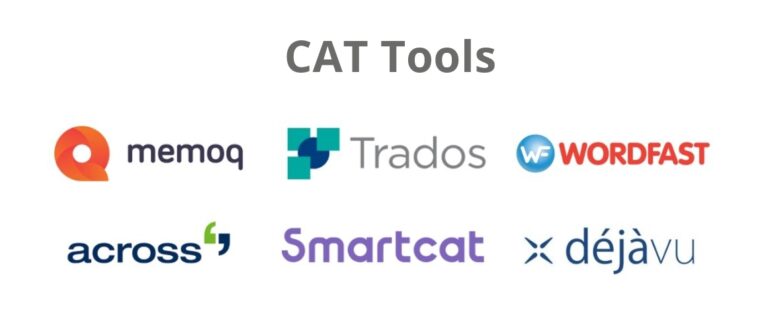
8 Tips For Choosing a Top-Tier eCommerce Translation Agency
Experience is the shortest and fastest route to your project success. Working with experienced professionals who have been doing this for years means they understand the ins and outs of the industry better than their counterparts. It’s simple. Practice makes perfect, and getting their clients’ jobs done right is more of a force of habit.
2. A Full-service Translation Agency
For your eCommerce project, you’ll need a professional translation agency to handle your project from A to Z. This means that they have unmatched translation and localization capabilities to provide content translation (including technical and legal translation), software localization, subtitling and voice over, desktop publishing (DTP), MTPE, localization QA and testing, SEO translation to rank in international search engines, social media translation, and more.
While searching for an eCommerce translation agency, you should look for one that can offer you the range of languages you need. Additionally, based on these languages, you may want to look for a translation agency that’s located in the region you are targeting. This geographical proximity offers you unparalleled access to the region and increases your chances of getting reliable, relevant translations. For instance, if you are targeting the Middle East, a translation agency that’s based in the UAE or Egypt is your best bet.
Quality is always a priority. So, always inquire about the agency’s quality assurance and control measures, from vetting their teams to project delivery. Find out if they conform to international quality standards such as ISO 17100 and ISO 9001. You’ll need to make sure that they have rigorous review and testing processes in place. This is a huge indication of how much they uphold the highest standards of work.
If technology isn’t an integral part of an agency’s work, then instantly check it off of your list. The impact of technology on a translation project in terms of quality, speed, and cost is too powerful to be overlooked while searching for a professional eCommerce translation agency. A technology-driven company that’s confident in its high-tech capabilities is your ideal partner.
Your eCommerce project is best left to a professional eCommerce translation agency that has worked on similar projects like yours. Learn more about their clients, read reviews, and ask for case studies. If they have a proven track record of these particular kinds of projects, this means they have specialized teams in your field – and you can entrust them with your project.
Your eCommerce translation partner should be able to keep your project data secured and protect your privacy at all costs. Inquire about an agency’s confidentiality policy procedures, how they handle your project documents, and how secured are their systems.
This is usually the biggest concern and one of the factors that can influence your decision-making. It’s understandable to go for an affordable translation agency but rule out those that offer suspiciously cheap rates because this scenario doesn’t have a happy ending. You can always request a free translation quotation to get an accurate pulse of how much your translation project is going to cost.
Looking For Seasoned eCommerce Translation Services?
bayantech provides a full range of eCommerce localization services including app and website localization services, powered by experts in the field. Our nearly 20 years of experience in the field have taught us how important it is to offer the best service to impress audiences worldwide
We have our team of expert linguists and project managers waiting for you, waiting for your project: Contact us!
Get a free translation services quote from an eCommerce translation company that offers services in all foreign languages.
Click on a star to rate this post!
5 / 5. 7

